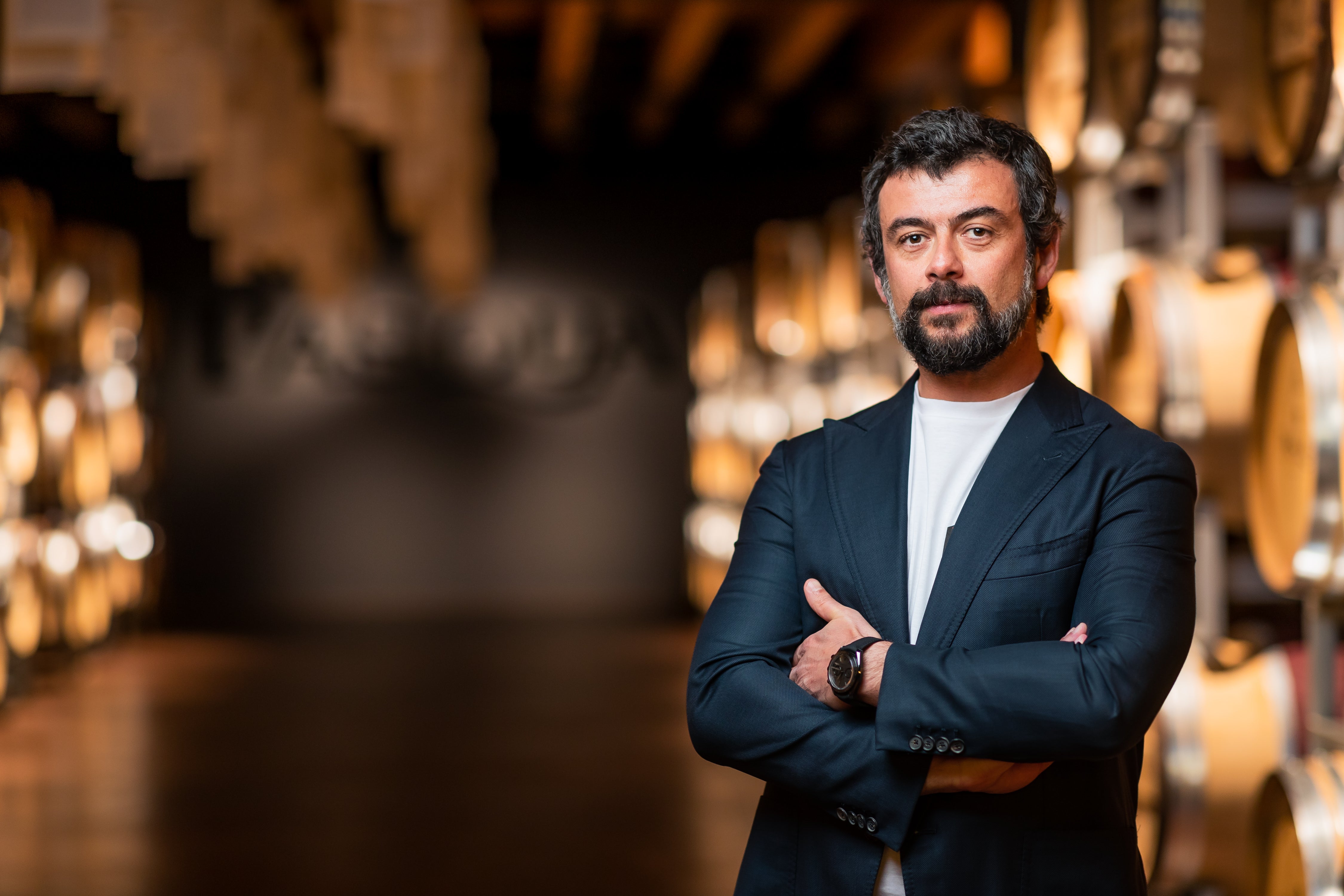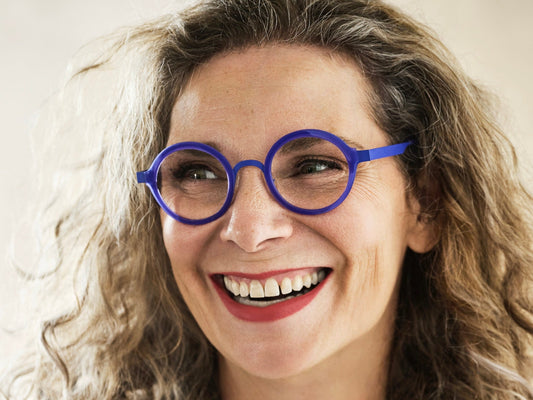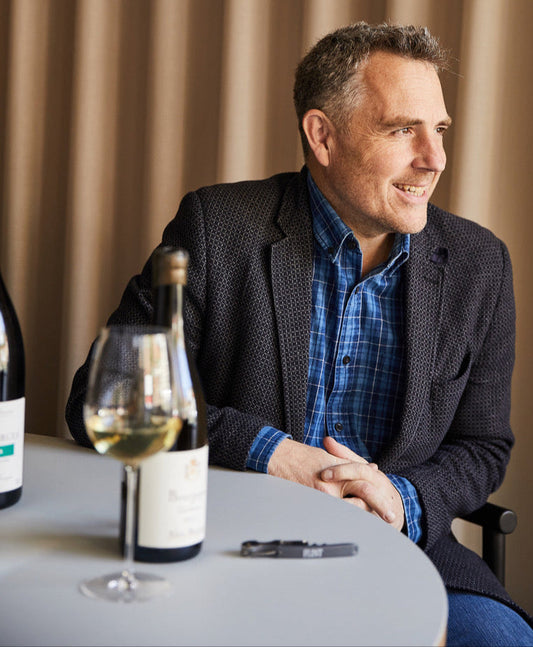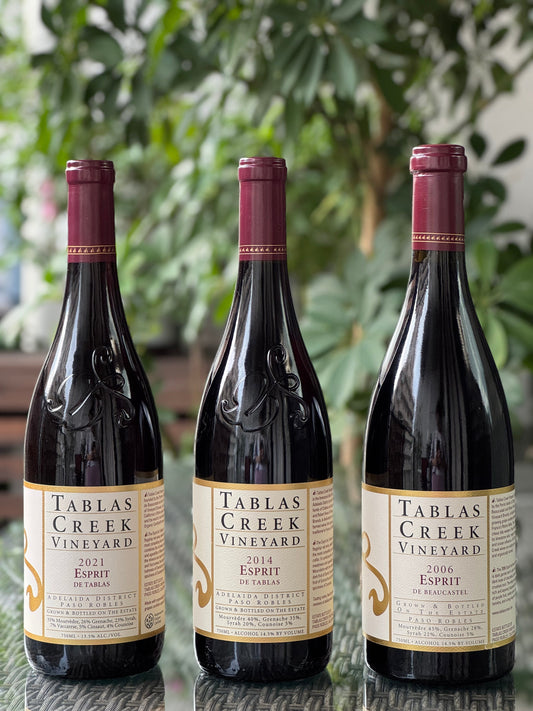Riccardo Pasqua is the third-generation steward of his family winery, Pasqua Vigneti e Cantine, which celebrates its 100th anniversary this year. The winery was founded in 1925 when Riccardo's grandfather transformed a deconsecrated convent in the little-known Valpolicella Orientale into a thriving wine business. Pasqua began working with the family company in 2007, taking on the role of sales director in 2014 and spending seven years in New York overseeing the international expansion of their brand. CEO since 2015, Pasqua leads a team spanning three continents with five of his family members, including his father Umberto, who serves as chairman, and brother Alessandro, the president of Pasqua USA. Pasqua is passionate about Italian wine and championing it worldwide. Below, Pasqua discusses his time in the US, his great achievements, and what he views as the greatest threats to Italian wine today.
Pasqua has just released its latest cuvée: Fear No Dark is a Cabernet Sauvignon-based blend with 5% of the indigenous Oseleta. It comes from a northeast-facing parcel of Valpolicella’s Mai Dire Mai vineyard – which produces Pasqua’s Amarone Mai Dire Mai. ‘With limited sun exposure, and kissed by the breezes from Mount Lessini, the plot is notably cool, allowing for a longer maturation cycle,’ the winery says. ‘We have been working on this project since 2010,’ Riccardo Pasqua adds. ‘We have studied the character of each parcel and, recognising the potential of that specific shadowy plot, have patiently observed its potential.’
Were you always destined to join the family company?
I grew up surrounded by the vineyards and the passion of my family, so in a way it feels like destiny. My grandfather Riccardo was called to military service in Verona where he had the intuition to import wines from his home region to sell in a little osteria. He ended up opening ten osterias using the same model. He later called up his three brothers for help. They bought an old, deconsecrated convent from which they established the Pasqua winery in 1925. Today, we are four family members: my father Umberto, a second generation Pasqua, is chairman of the board; my brother Alessandro is president of Pasqua USA; my cousin Cecilia runs the UK side of the business and other pivotal countries. When I joined, it was with a determination to bring something new and build on what my family had started.
What would you be doing now if you weren’t in the wine business?
Well, before joining the family business I had a quick career in investment banking. And I was a quasi-pro golf player. But I don’t think I would have pursued either of them. Over the past ten years my creative side came out strongly — so maybe I would be doing something in that space.
Whom do you most admire of the great winemakers and producers of the past and present?
Other figures on today’s world stage who have had an innovative and disruptive influence are two brothers: Laurent and Jean-Harvé Chiquet, of the Champagne house Jacquesson. Their Cuvée 7** is a hymn to the art of blending, based on a single declared vintage combined with several reserve wines. This innovative, transparent approach aims to offer one of the purest representations of terroir. Despite being a non-vintage wine, it is different every year yet still adheres to the style and terroir. We have taken this concept as an inspiration for the creation of our still wine Hey French, a multi-vintage white wine, where each vintage is vinified separately and which in the final blend tells the story of the volcanic terroir and altitude of Monte Calvarina. The style of their labels is also very interesting in the way it differs from the more traditional labels of the area.
You’re frequently described as a ‘disruptor’ — has it been difficult to move in a different direction in the conservative world of Italian wine?
It hasn’t been easy, but that’s where the excitement lies. Italian wine is steeped in tradition, and while I deeply respect that, there’s room for reinvention. For instance, the Hey French stems from a breathtaking Garganega vineyard in the Soave hills, but we made this still wine with a multivintage method, which is unheard of in the world of Italian wine. I would add that the choice to tell our story through contemporary art, especially immersive and digital art, is itself an unconventional choice. In the search for ways to bring new generations closer to an idea of wine that is not elitist or anchored to traditional stylistic features, contemporary art has emerged as the most befitting route to our vision. Change always meets resistance, but if you’re clear about your vision and stay true to it, you can make an impact.
What are the three most important things a wine CEO should remember?
Be brave, be ambitious, communicate.
Which do you think is the most underrated wine region?
Provence, from which we took our cue for our two rosés. On the one hand, it is true that it is an over-exploited region known to produce a specific style of rosé, particularly quaffable, with lively vegetal notes and vivid minerality. But there is more to it than just rosés: for instance, great reds for ageing and whites that manage to combine extreme sapidity with fragrant aromatics.
If you could work anywhere in the world (apart from Veneto) where would you go?
My years in the USA inspired me. I lived there for seven years. It feels like nothing is impossible and dreaming big is not an anomaly but the standard approach – something that Europe is missing.
What are the greatest threats to Italian wine — economics, environmental, political?
Environmental challenges are the most pressing. Climate change is reshaping our vineyards, and we need to adapt quickly to preserve quality and tradition. The impact over the last few years is noticeable: summers are warmer, every year we have hailstorms and intense rain events. So the change is happening. Amarone, our ambassador wine, is made with partially dried grapes. Until eight years ago we needed a drying process to get to the right ripeness. Today, with climate change, this drying process is much less needed. Economically, maintaining competitiveness in an increasingly global market is critical. Politically, we need consistent support for the wine industry, especially regarding exports. We need our European policymakers to incentivize us in different ways.
Which of your achievements are you most proud of?
In 2023, our winery was awarded the Wine Innovator of the Year award by the American magazine Wine Enthusiast. It was the first time that this award was given to an Italian winery.
What would you have done differently?
I would have avoided compromises and cut the relationships with people I didn’t trust and like 100% much earlier. As my mentor Rich Scelfo use to say – ‘we need a strict ass**le free policy.’ Couldn’t agree more.
What qualities do you most admire in a person?
Be true to yourself, be loyal and be determined.
What’s your favourite restaurant?
Big question. In Milan, where I live, Rovello and Bentoteca. In Verona, where I grew up, Locanda Castelvecchio and Oste Scuro. In New York, definitely Sant Ambroeus and Kappo Masa.
Fear No Dark MAI DIRE MAI Veneto IGT 2020 is available from Harrods at £32





